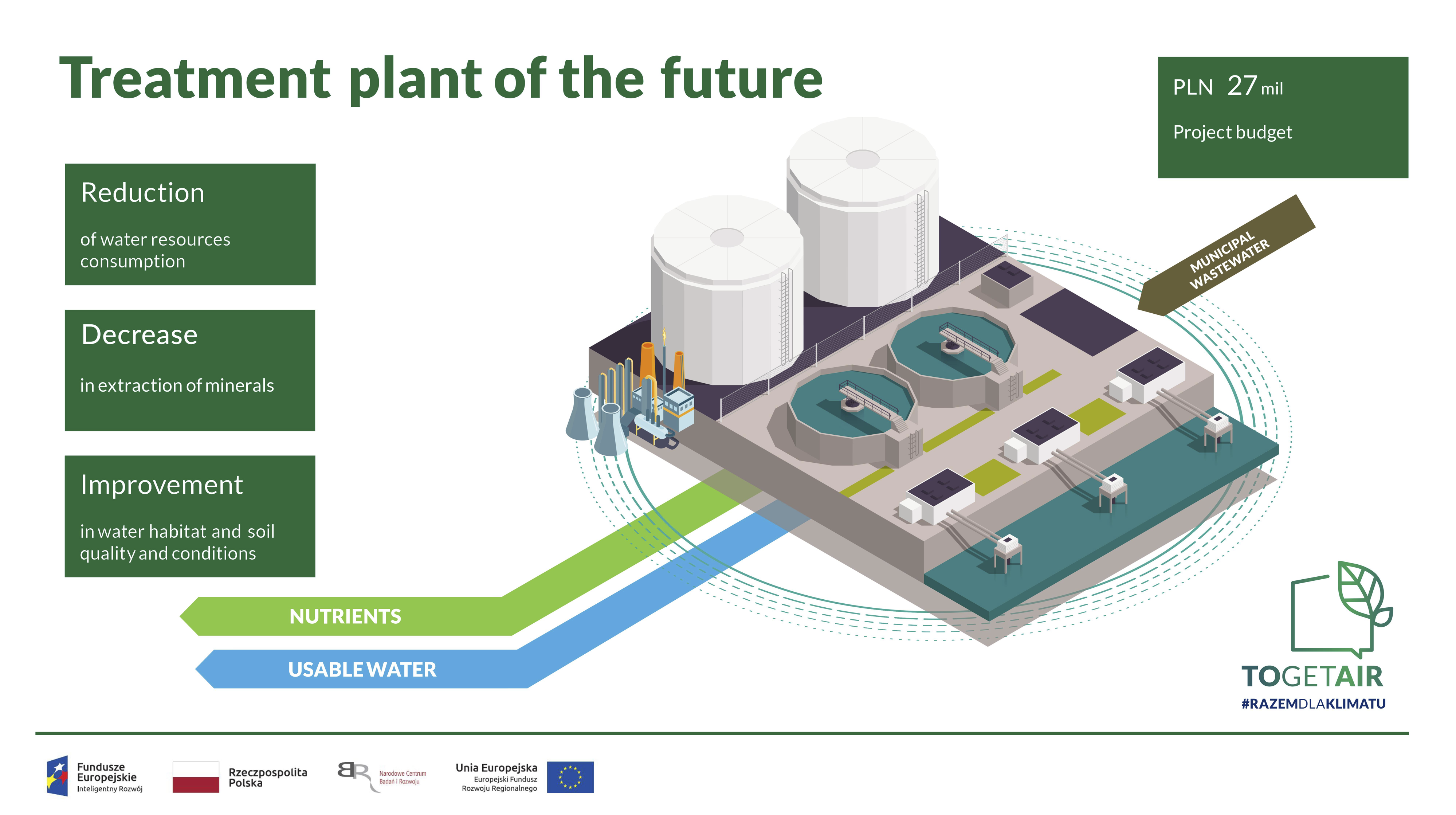The wastewater treatment plant of the future is the next step in meeting the goals of the European Green Order
The National Centre for Research and Development is looking for such answers in innovation. At the turn of the year, the Centre launched the first pre-commercial procurement (PCP) projects to search for the best solutions for pressing problems related to the sustainable development of the Polish economy and society. The topics were selected in terms of innovations with great potential for mass implementation and which could become a Polish specialty. The Wastewater Treatment Plant of the Future is one of the already announced projects. It is an innovative technology of wastewater treatment that is energy-efficient and contributes to the improvement of the condition of surface waters. Water purified to such a level allows for its reuse in municipal economy and industry.
Unused resources
The current system produces a lot of waste that ends up in landfills because it cannot be recycled. The National Centre for Research and Development wants to develop an innovative technology enabling the full use of products obtained in the processes occurring in wastewater treatment plants. The methods developed in this way are to enable the application of a waste-free economy strategy. They will allow products to be recycled and reused, creating closed circuits. It is about the return of organic compounds and nutrients to the environment, as soil improvers, organic fertilizers and mineral fertilizers (in the case of phosphorus recovery). All this will cause the reduction of the production of artificial fertilizers, and thus the construction of ecological agriculture.



The wastewater treatment plant of the future is also to ensure greater energy recovery or energy efficiency of the entire process. This is to lead to the reduction of greenhouse gas emissions. The recovered water is not only to be discharged into the environment, but also used for utility purposes, such as agricultural irrigation or the maintenance of urban green space, which will ensure a closed water cycle in agriculture, industry and city infrastructure. The NCRD strives to ensure the developed technologies to be universal and used throughout the country: in municipal wastewater treatment plants, as well as in industry. It also planned that the system would be designed to reduce the nuisance associated with its operation for the immediate environment. In addition, an important goal of the project is, for example, to develop a technology for the elimination of micro-pollutants such as pharmaceuticals (antibiotics, hormones) and pesticides. The level of micro-pollutants in the environment is gradually increasing, threatening more and more ecosystems and humans, which is why their elimination is so important.
Development of enterprises, new workplaces, and a green future
The success of the project will become an impulse to the development of water and sewage companies, companies producing innovative technologies for sewage treatment plants and for their contractors, which will have a positive effect on the domestic market and exports. Such a revival of the sector will create numerous permanent job vacancies. The development of the industry will improve the energy security of the country and the living conditions of the society, due to the developed water and sewage management system.

The wastewater treatment plant of the future will allow us to recover raw materials, water and generate energy using biomass more easily. This will reduce the carbon footprint and will be in line with the EU's European Green Order strategy. The such-applied technologies will contribute to improving the protection of water ecosystems and reducing water consumption by recovering and renewing it in the process of wastewater treatment.
For three years, as part of the "Wastewater Treatment of the Future" project, the National Centre for Research and Development will select the contractor for the modernized municipal wastewater treatment plant, which will ensure a circular economy. The granted funds amount to PLN 27 million. The company will launch the installation and prepare ready-made solutions to implement them in other facilities across the country.
The project is implemented as part of a non-competitive project entitled Raising the level of innovation in the economy by implementing research projects under the innovative public procurement procedure in order to support the implementation of the European Green Order strategy (under sub-measure 4.1.3 Innovative methods of research management of the Intelligent Development Operational Program).
NCBR Editors




